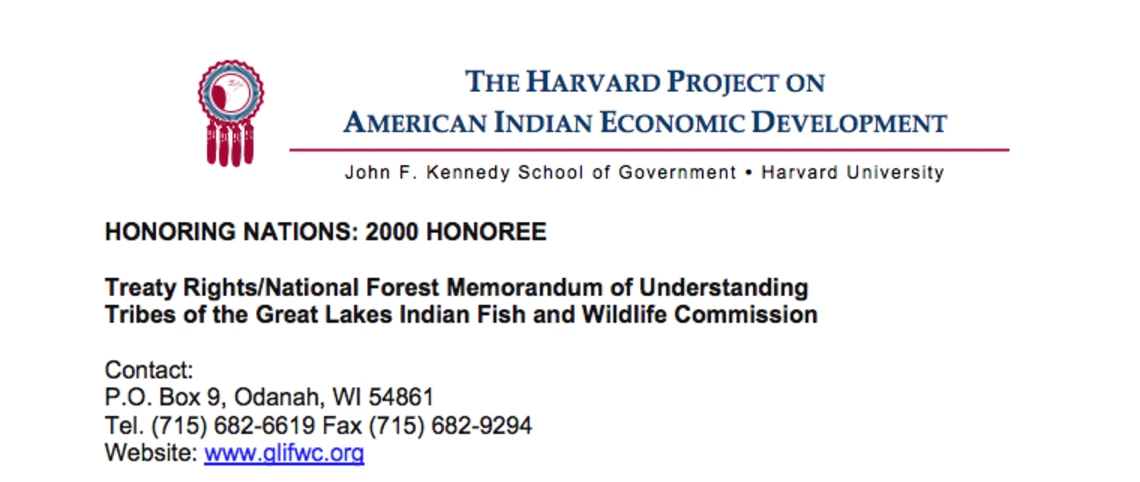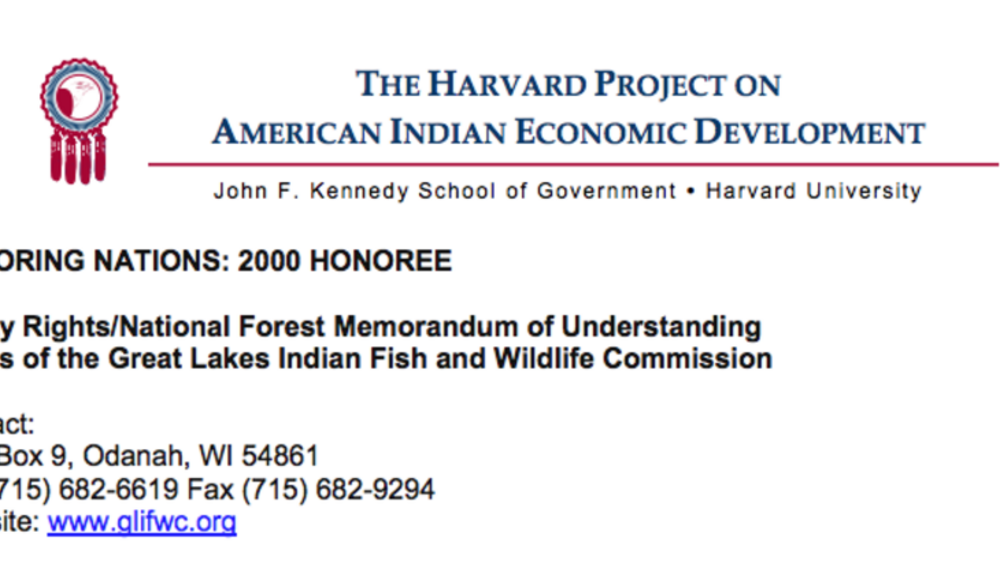The Great Lakes Indian Fish and Wildlife Commission, a tribally chartered intertribal organization, negotiated a memorandum of understanding (MOU) with the U.S. Forest Service that recognizes and implements treaty guaranteed hunting, fishing and gathering rights under tribal regulations and establishes a consultation process for management decisions that affect treaty rights in four National Forests located within areas ceded by the Chippewa in the Treaties of 1836, 1837 and 1842.
Additional Information
"Treaty Rights/National Forest Memorandum of Understanding". Honoring Nations: 2000 Honoree. The Harvard Project on American Indian Economic Development, John F. Kennedy School of Government, Harvard University. Cambridge, Massachusetts. 2001. Report.




